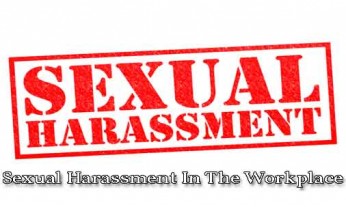 When it comes to sexual harassment in the workplace, there are many people who can easily give examples of it, but know very little about sexual harassment law itself. An important, basic fact about sexual harassment law which very few people understand is that there are two different categories of sexual harassment cases: quid pro quo sexual harassment, and harassment that takes the form of a hostile work environment. Both of these types of harassment are prohibited by Title VII of the Civil Rights Act of 1964, and by the California Fair Housing and Employment Act (FEHA).
When it comes to sexual harassment in the workplace, there are many people who can easily give examples of it, but know very little about sexual harassment law itself. An important, basic fact about sexual harassment law which very few people understand is that there are two different categories of sexual harassment cases: quid pro quo sexual harassment, and harassment that takes the form of a hostile work environment. Both of these types of harassment are prohibited by Title VII of the Civil Rights Act of 1964, and by the California Fair Housing and Employment Act (FEHA).
Quid Pro Quo
The term “quid pro quo” means “something for something” in Latin. Quid pro quo sexual harassment is when someone tries to obtain sexual favors from a coworker by abusing their workplace authority. This can be done with the offer of something positive (for example, “If you sleep with me, I’ll give you a raise”), or with the threat of something negative (for example, “If you don’t sleep with me, I’ll fire you.”)
“Sexual favors” does not necessarily have to mean sexual intercourse – or any kind of physical sex act, for that matter. Offering someone a promotion if they’ll talk dirty to you would be a form of quid pro quo sexual harassment. Telling a subordinate employee that you’ll cut their benefits if they don’t go on a date with you is also an example of quid pro quo sexual harassment, even though you weren’t specifically requesting sex from the employee.
If an employee is subjected to quid pro quo sexual harassment, s/he will not be prevented from filing a claim on the basis of whether or not s/he gave in to the harassment.
Hostile Work Environment
Sexual harassment that takes the form of a hostile work environment does not necessarily involve threats or propositions. A hostile work environment occurs when an employee is subjected to unwelcome sexual conduct in the workplace, and this conduct is severe and pervasive enough that it unreasonably interferes with the individual’s work performance, or it creates an abusive or offensive working environment.
This conduct can take many forms, including:
- Sexual jokes, questions and/or comments
- Displaying inappropriately sexual images (such as pornography)
- Lewd behavior and/or gestures
- Frequent, inappropriate physical contact
- Repeated requests for dates
- Physical interference with an employee’s movement
The Importance of Proper Legal Advice
If you believe that you have been the victim of sexual harassment in the workplace, an employment discrimination attorney will be able to answer your questions, and help you determine your best course of action. Likewise, if you are an employer, and you have concerns about sexual harassment in your workplace (or you have concerns about your sexual harassment policy), speaking to an attorney may help you avoid litigation, and better serve your employees.
The employment and labor law attorneys at Beck Law P.C. have considerable experience in sexual harassment cases. You can call or email today to schedule a consultation.
